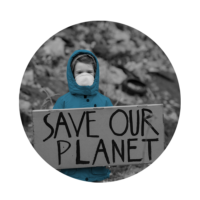The ecological crisis is having a significant impact on our mental health, in particular young people. There is an ongoing debate whether this topic should be front and centre for mental health professionals, and those that work with children. What do they need to be doing? What do young people think? How can we work together?
As the world focuses on COP26, and as part of the lead up to the CAMH Special Issue on ‘Child and youth mental health & the global ecological crisis’ (due to be published in February 2022), we’ll be discussing the mental health implications of climate change with leading mental health professionals, young people, clinicians, and researchers.
This is sure to be an impassioned, lively discussion and one not to be missed.
Quick links about the event
About the event
Prices and booking
Resources
About the speakers
About the event
A panel comprising, Professor Dr. Bernadka Dubicka, Dr. Lise Van Susteren, Jennifer Uchendu, Dr. Laelia Benoit, and Rhiannon Hawkins, Royal College of Psychiatrists Young Person Representative, will discuss the research on climate anxiety and what we know about the burden of mental illness in places that are currently affected by climate change with Douglas Badenoch. This discussion will be chaired by Andre Tomlin (@Mental_Elf) and a young person with lived experience.
They’ll be discussing:
- Experience. What are the affects of climate anxiety on a young person?
- Evidence. What studies have been done on climate anxiety? What is the quality of this evidence?
- Engagement. What should we do personally and professionally?
Pricing and booking
Sign up to this free event at this link or on the Book Now button at the top of the screen and complete the form that follows. You’ll then receive an email confirmation and a link to the webinar, plus we’ll send you a calendar reminder nearer the time. ACAMH Members attending will be eligible for an electronic CPD certificate.
Resources
Do please also listen to panelist Dr. Laelia Benoit’s 17-min podcast on ‘The Anxiety and Grief of the Ecological Crisis’ and the paper is available free until 3 December 2021
The Royal College of Physiatrists ‘Eco distress: for young people’
The Royal College of Physiatrists position on sustainability
About the Speakers
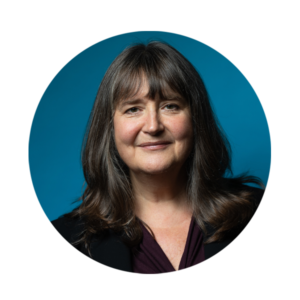
Professor Bernadka Dubicka is a Consultant Psychiatrist at Pennine Care NHS Foundation Trust, Honorary Professor at the University of Manchester, and Editor-in-Chief of the journal Child and Adolescent Mental Health. She is the former Chair of the Royal College of Psychiatrists (RCPsych) Child and Adolescent Faculty, where she played a leading role in developing the eco-CAMHS group; contributed to the RCPsych position statement on the ecological crisis; and has commissioned a special issue of CAMH on the ecological crisis (Feb 2022) with invited editor, Dr Ann Sanson. She attended COP26 in Glasgow as an RCPsych observer.
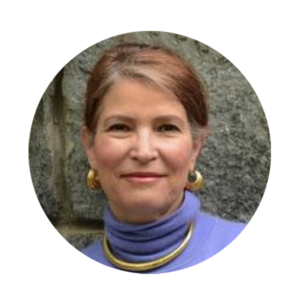
Dr. Lise Van Susteren is an American psychiatrist in private practice in Washington, DC with a special interest in the psychological effects of climate change. Dr. Van Susteren speaks frequently to civic, educational, religious, labor, and environmental groups about the impacts of climate change, particularly the health impacts, in the Washington, DC area, nationally, and abroad. In 2009, she organized the first conference to focus on the psychological impacts of climate change. She co-authored The Psychological Effects of Climate Changepublished by the National Wildlife Federation.
In 2011, Dr. Van Susteren collaborated with Our Children’s Trust in a lawsuit against the federal government for breach of its fiduciary duties to preserve and protect the atmosphere for children and future generations. Dr. Van Susteren co-founded Interfaith Moral Action on Climate, a multi-faith coalition dedicated to organizing people of religion and spirituality to speak out against climate change. She also co-authored the 2013 piece, Assessing “Dangerous Climate Change”: Required Reduction of Carbon Emissions to Protect Young People, Future Generations and Nature, published by PLOS ONE, an open access peer-reviewed scientific journal published by the Public Library of Science.
Dr. Van Susteren serves on the advisory board of the Center for Health and the Global Environment at Harvard Medical School and is a member of the Board of Directors of the National Wildlife Federation and the Chesapeake Climate Action Network. Since 2009, she has served on the Climate Energy and Environmental Committee of the Metropolitan Washington Council of Governments in Washington, DC. She also serves on the Policy Advisory Board of Gender Rights Maryland.(Bio and image from Climate for Health)

Jennifer Uchendu is an ecofeminist, sustainability communicator and the founder of SustyVibes – a youth-led organisation championing sustainable development research and project in Nigeria through pop-culture. Her recent research interests lie between the intersects of climate change and mental health with a focus on intersectionality and emotions in youth climate activists. (Bio and image from Confer)
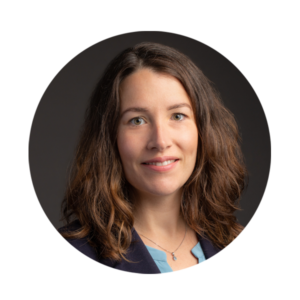
Dr. Laelia Benoit (MD, Ph.D.) is a French and Brazilian Child and Adolescent Psychiatrist and associate researcher at the Center for Research in Epidemiology and Population Health (CESP) of the French NIH (Inserm). Her current project assesses the impact of climate change on the mental health of children and adolescents in three different countries (the US, Brazil, and France). Laelia Benoit favors citizen research approaches, involving adolescents, their parents, professionals, and family support groups. Her teaching (Yale University, Universidade de São Paolo, University of Paris) focuses on qualitative methods for researchers, and on psychological and social science skills for caregivers and school professionals to help them support the health of children. (Bio and image from Yale School of Medicine)
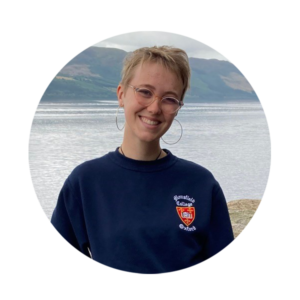
Rhiannon is a young person representative for the Royal College of Psychiatrists and studies Geography at the University of Oxford. She has been involved in a variety of different eco distress Royal College projects, for example: planning conferences, doing press interviews and contributed to the College’s climate position statement. She is currently involved with the ACAMH journal and is writing an article for their COP26 issue being released in February. She has a strong interests in Climate Change, eco distress and intersectionality.
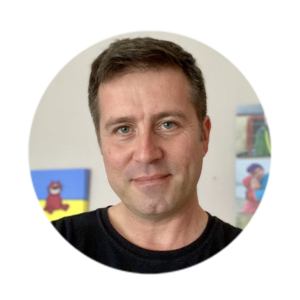
André Tomlin is an Information Scientist with 20 years experience working in evidence-based healthcare. He’s worked in the NHS, for Oxford University and since 2002 as Managing Director of Minervation Ltd, a consultancy company who do clever digital stuff for charities, universities and the public sector. Most recently André has been the driving force behind the Mental Elf and the National Elf Service. The Mental Elf is a blogging platform that presents expert summaries of the latest reliable research and disseminates this evidence across social media. They have published thousands of blogs over the last 10 years, written by experts and discussed by patients, practitioners and researchers. This innovative digital platform helps professionals keep up to date with simple, clear and engaging summaries of evidence-based research. André is a Trustee at the Centre for Mental Health and an Honorary Research Fellow at University College London Division of Psychiatry. He lives in Bristol, surrounded by dogs, elflings and lots of woodland!
Follow on Twitter @Mental_Elf
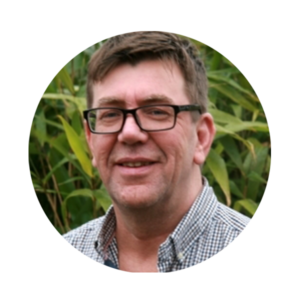
I am an information scientist with an interest in making knowledge from systematic research more accessible to people who need it. This means you. I’ve been attempting this in the area of Evidence-Based Health Care since 1995. So far the results have been mixed. For some reason we expected busy clinicians to search databases and appraise papers instead of seeing patients. We also expected publishers to make the research freely available to the people who paid for it. Ha! Hence The National Elf service.


